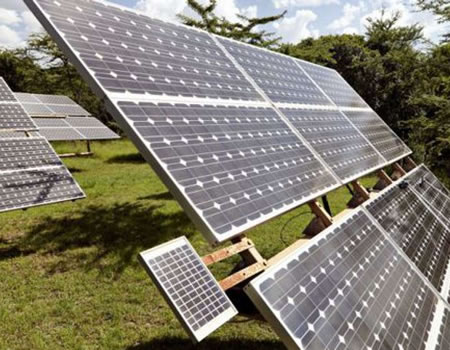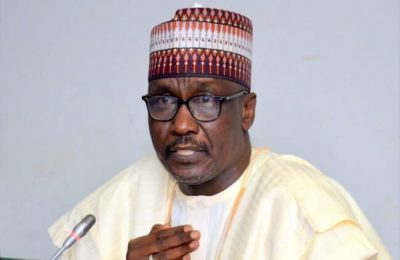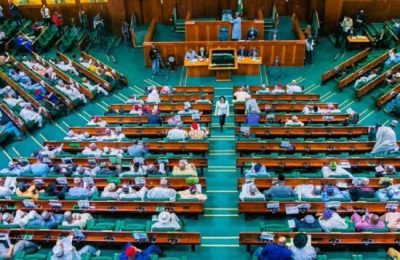Chief Medical Director of Obafemi Awolowo University Teaching Hospital Complex, Ile-Ife, Osun State, Professor John Okeniyi, has declared that electricity supply is a problem faced by many tertiary hospitals in the country, including OAUTHC, Ile-Ife.
According to him, the Committee of CMDs of tertiary hospitals, including Federal Medical Centres, at its meeting made it known that power was a significant problem in the daily operation of tertiary hospitals.
Professor Okeniyi said that the 50% rebate on energy expenditure needed to be backed up with a policy document even as the hospitals also needed to be moved from band A to band B to cope with the hospital’s energy expenditure.
Okeniyi added: “But it is a valid government position. Many other things were pronounced that people are not looking at, like power upgrades with solar systems. This is already happening.”
On the energy bill of the OAUTHC, a multi-campus hospital with student hostels, he said the monthly energy bill of its biggest hospital jumped from N25 million in April to N70 million in December.
According to him, to cope with the high energy expenditure, the hospital sheds power and has started a massive investment in solar energy for the day-to-day running of different sections of the hospital.
“Street lights are done by solar rather than from the national grid. Places like the theatres, newborn unit, labour and ophthalmic theatre, dental, as well as the accident and emergency department are put on solar so that they can operate throughout the day without the national grid. It takes the bill off the IBDEC bill. So, currently, what we are paying IBDEC is between N30 and N40 million monthly,” he added.
Chief Medical Director of Lagos University Teaching Hospital (LUTH), Professor Lanre Adeyemo, said the hospital, in its bid to cope with ensuring electricity availability in the hospital, had cut down on its energy expenditure by prioritising alternative energy sources and cut down on energy wastages in the hospital.
While stepping the hospital down to band B will cut expenses on energy expenditure, he said philanthropists, corporate bodies and companies had also been supporting the hospital’s drive that all its facilities are powered by solar energy and already existing ones are upgraded for improved efficiency.
Professor Adeyemo listed areas in the hospital powered with solar energy as including its medical, surgical obstetrics & gynaecology, and paediatric wards; blood bank; neonatal unit; laboratories; intensive care unit; and the accident and emergency department, adding, “The federal government has also given us a hint that they want us to also look at the off-grid options for our hospitals.”
He declared that the use of generating sets to power hospitals is not sustainable because there should be an electricity supply all round the clock in a hospital.
Professor Adeyemo, however, assured that the federal government has earmarked some hospitals for off-grid options, while overheads of the hospitals have been increased to help in terms of power provision.
Ms. Funmi Adetuyibi, Chief Information and Public Relations Officer, University College Hospital, Ibadan, who spoke on behalf of UCH’s hospital management, said the 6-month-old power outage is yet to be resolved, and the hospital relies on generators and solar inverters to keep the hospital functional.
She declared that areas like the southwest and southeast wings of the hospital, the outpatient clinics, the neonatal ward, the blood bank, the northwest 2 ward, and the universal laboratory are powered by solar energy while the hospital awaits the plea that the hospital be placed on band B.
According to her, the hospital makes use of its generators for powering its theatres.
“We run the generators for 6 hours. During that period, the operations are being done. So they triage surgical operations based on scale of preference. So the most important ones, we quickly attend to them,” she added.
Ms Adetuyibi expressed displeasure with the vandalisation of the electric cables connecting the hospital to the electric grids.
“We caught some of them vandalizing the cables; they are in the custody of the police. But the truth of the matter is, it is not stopping,” she declared.
She declared that the hospital is not in total darkness as people presume but the energy crisis had negatively impacted the number of patients the hospital attends to daily.
“For instance, if 60 surgeries are being done before the power supply problem, it has reduced to about 10. So, it is very low. Likewise, the power outage has also affected the number of outpatients and inpatients we see.
“All the systems are running. We are doing better, but we are still craving more help and more support. They are responding. Some have even come to check the hospital out. But actually, this has opened the eye of the hospital in terms of technology advancement,” she said.
READ ALSO: Makinde to launch 500MW solar power project in Oyo community







